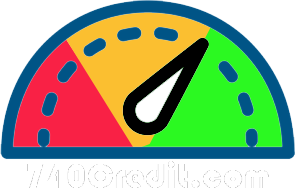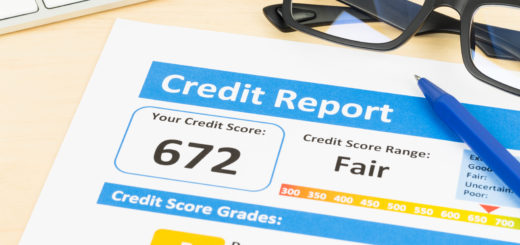What is a Credit Score?
If you are like most people, you have heard at some point that you need to have a good credit score in order to qualify for the best terms on any type of credit offer or loan. Some people wonder, what exactly is a good credit score? How does having a good score really effect my offers in comparison to having a bad score? How is my score calculated anyway?

What is a Credit Score and Why is it Important?
To start, most people refer to their credit rating as a a credit score or FICO score. All three terms mean the same thing. It is a ranking given to you basked on your past credit history. Each of the three main credit bureaus in the United States has their own scoring model and they are all based on the model use by FICO, or the Fair, Isaac and Company Cooperation who developed the “gold standard” of rating consumer credit back in the 1950s. Your score will vary slightly among each of the bureaus as well as with FICO. This score also fluctuates monthly based on your current financial habits.
You credit score is what any lender will be looking at when you apply for credit or a loan. Some employers even check your credit now as part of the hiring process. Your credit history is ranked on a number of factors and you are assigned a credit score. This score is what lenders will consider when determining if you are a good financial risk or not. The higher the score, the better risk you are. A lender will be more willing to bet that you will be able to pay back and meet the terms offered to you. If you have a high score, you will qualify for lower interest rates, higher credit limits, and larger loan amounts.
How is a Credit Score Determined?
The actual formulas used to calculate your score are extremely complex. They are a closely guarded secret among FICO and the credit bureaus. With that being said, there is a basic set of factors that will help you understand how your score is calculated.
- Amount of money you owe-30%
- New Credit-10%
- Payment History-35%
- Length of Credit History-15%
- Types of Credit-10%
As you can see, the most important factors are your payment history and the amount of money you owe. This means that paying your bills on time, not missing payments, and keeping your balances in a reasonable range will boost your score.
One category that surprises some people is the type of credit you use accounts for 10% of your score. Essentially, lenders like to see that you are able to handle different types of credit and loans. Making sure you have a nice mix of both credit cards and other types of traditional loans such as a mortgage, auto loan, or personal loan. Lenders like to see that you are not relying just on credit cards and are building a full financial life.
The other category that trips some people up is the New Credit category. Any time you apply for new credit or a new loan, an inquiry will go on your credit report. To many of these inquiries will reflect negatively and your score will go down. Why is that? If you are seen to be applying for several new credit cards and/or loans in a short period of time, this could be a red flag to lenders that you have having financial difficulty. If you are going to be applying for a large loan in the near future (think a mortgage or new car), be sure that you are not also applying for smaller loans or new credit cards around the same time.
How Can I See My Credit Score?
In the United States, there are three main credit bureaus: TransUnion, Equifax, and Experian. Each company offers consumers various services including credit monitoring and access to their credit scores, but everyone can get one free copy of their credit report per year from each bureau.
Understand, however, that your credit report and credit score are not the same thing. Your credit report is just that, a report. It lists your personal information such as your name, current and former addresses, date of birth, etc. as well as a list of all credit and loan accounts you have that are currently eligible to be reported to the credit bureaus. You will find both open and closed accounts on your report as they all effect your credit profile. Closed accounts, depending on the type, can remain on your report for up to 7 years and negative things such as a loan default or bankruptcy will show for up to 10 years after the account closure or discharge.
There are a lot of free credit monitoring services on the web that will provide you access to your score. You can also directly pay the credit bureaus or FICO for access to your current score. Keep in mind that your score will fluctuate from month to month. While your score will be about the same everywhere, there will be slight differences between each of the reporting bureaus. This is due to the fact that everyone has their own formula for calculating scores as well as the fact that some companies do not report on your account to each bureau.
So, What is a Good Credit Score Anyway?
While there is some debate on this, most experts agree that a score in the range of 670 to 736 is “good”. Anything above 740 considered “excellent”. Having a score in the good range will generally mean you will qualify for the best terms and interest rates available on credit cards and loans. Having an excellent score will also mean you may be able to get for the most exclusive types of credit accounts available.
If you have a credit score in the 580-669 range, this is generally though to be an OK score. You will still be able to find plenty of lenders willing to extend you credit or give you a loan but you will not be getting the best interest rates they have or the best payment terms.
Any score below 579 is bad and you will find that if you are able to get credit or a loan, you will be paying the highest interest rates the company can charge. You may also not be able to get the best repayment terms.
How Your Score Effects Eligibility
Let’s consider several different scenarios in which you are seeking either a loan or credit. How will your score effect the interest rates you will pay? Take a look at the below chart to give you an idea.
| Good to Excellent Credit Score | Fair Credit Score | Poor Credit Score | |
| Mortgage | 2.52-2.92% APR | 3.14-3.64% APR | 4.18% APR or higher |
| New Car Loan | 4.68% APR | 7.65% APR | 14.39% APR |
| Used Car Loan | 6.04% APR | 11.26% APR | 20.45% APR |
| Credit Card | 16.5% or less APR | 19.0% APR | 20.5% or more APR |
What Lowers My Score?
One of the fastest ways to see your score drop is making a late payment. A single late payment can reduce your score by as much as 70 points. It is important to make your payments on time every single month. If you find yourself in a situation where you will not be able to make a payment, contact your creditor right away to see if they can work with you to ensure you will not have the late payment reported to your credit report.
My Credit is Already in the Average or Good Range. How Can I Make it Better?
In general, having credit basically boils down to three things: making payments on time, keeping your balances low, and not applying to often for new credit or loans. If you stick to these three things, your score will rise. There is no magic wand you can wave to improve your credit over night so be wary of anyone who tries to tell you anything different.
My Score is Pretty Bad. How Can I Change That?
Knowing you need to improve is a great first step. Get copies of your credit reports and sit down to make sure everything is correct. Next, draw up a budget so you can see visually how much money you have to out towards your outstanding debts. Start making extra payments where you can to lower balances and make sure you are sending in payments on time. If you are struggling to make your payments, consider using a reputable credit counseling service that can help you by combining all your payment in to a single monthly installment, often times at lower interest rates.
Do I Have to Skip Getting a Loan Because of My Bad Credit?
Not necessarily. You may have to visit what is called “sub-prime” lenders or lenders who specialize in consumers with bad credit in order to get a loan or credit account. Do be careful when shopping around for these companies because there are plenty of people out there who will try to take advantage of your financial situation. Read reviews on anyone you are considering doing business with.
Will I be Stuck With Poor Terms Forever?
Not at all! If you have an old loan or credit account that was opened before you improved your credit, you may be able to contact the company to lower your interest rates. This is easier to do with a credit card as a loan will likely have to be refinanced. Give your lender a call and ask they check to see if you can be given a lower rate. This works more often than you think and it never hurts to ask.
What if I Find an Error on My Credit Report?
If you check your report and find an error, contact the credit bureau right away. You will need to provide documentation as to why you believe the information is wrong. You can report errors online or you can reach out by mail. Having incorrect information on your report can lead to your score being lower than it should. Companies make mistakes, and if they mistakenly reported your made a payment late when you did not, you can see your score tank. Once you are informed the error has been removed, request an updated version of your report and score just to confirm it is gone. You will want to wait about a month after the removal to do this since it can take up to 30 days for the information on your report to update.



